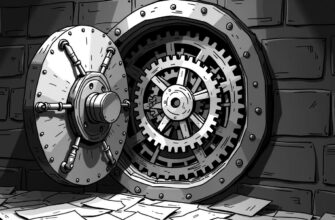Does Crypto Demand a Leap of Faith?
Q: Is investing in crypto a matter of faith?
A: To some extent, yes. The value of cryptocurrencies is influenced by factors like trust, perceived usefulness, and a collective sense of optimism. If you believe in a coin’s utility, you’re likely to support it, even if there are no concrete economic fundamentals backing it at the moment.
Q: What kind of faith does this suggest?
A: The faith in crypto is not necessarily blind; it can be based on optimism and the belief in the technology’s potential. For many, it’s about the possibility of a brighter future that could be ushered in by these digital assets.
Is Developer Centralization a Problem for Blockchain?
Q: Is developer centralization a cause for concern?
A: Yes, very much so. The concentration of experienced developers in the blockchain ecosystem poses risks to its decentralized nature. A more centralized environment can limit innovation and create barriers for newcomers trying to break in.
Q: What are the other risks associated with developer centralization?
A: Developer centralization can lead to security vulnerabilities, especially in projects relying heavily on smart contracts. There’s also a risk of governance becoming too centralized, which could threaten the ethos of decentralization.
Are there Non-Criminal Applications for Blockchain?
Q: Are there legitimate real-world applications for blockchain?
A: Absolutely, and they are numerous. For example, in healthcare, blockchain can help secure medical records and facilitate secure transactions through decentralized content management systems and smart contracts.
Q: What about supply chain and government applications?
A: In supply chain management, blockchain offers transparent oversight and traceability, which is essential for ensuring product integrity. In government, it can streamline bureaucracy and enhance accountability through smart contracts, as well as improve voter engagement in elections.
Can Blockchain Overcome Centralization Challenges?
Q: How can blockchain projects combat centralization risks?
A: They can employ decentralized governance models to distribute decision-making power and ensure transparent processes regarding token distribution and development.
Q: What about self-custody and decentralized infrastructure?
A: Self-custody and decentralized infrastructure can help minimize reliance on centralized entities, bolstering security and resilience.
Q: Is transparency key?
A: It is. Transparent processes build trust and help prevent the concentration of power and influence in any one part of the network.
In summary, while faith plays a role in cryptocurrency, it’s not the only factor. The technology shows promise in various legitimate sectors. Addressing the centralization of developers and promoting decentralized governance can help fulfill that promise while maintaining the ethos of blockchain.








